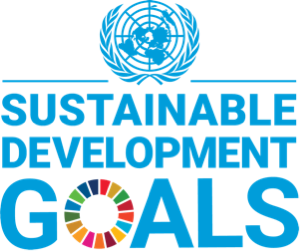Employment Practice Appeal Process: EVSU Grievance Machinery
Eastern Visayas State University (EVSU) institutionalizes a strong commitment to equitable, transparent, and accountable employment practices through its 2017 Grievance Machinery, formally approved by the Board of Regents under Resolution No. 32, s. 2018. This comprehensive policy framework operationalizes the principles enshrined in Section 37, Chapter 5, Book V of Executive Order No. 292 (Administrative Code of the Philippines), Civil Service Commission (CSC) Resolution No. 010113 (MC No. 2, s. 2001), and other relevant laws that guarantee employees’ rights to present and appeal complaints or grievances in a fair and expeditious manner.
The Grievance Machinery serves as the University’s official employment appeal process, designed to resolve issues concerning employee rights, pay, promotion, benefits, workload, and work conditions, ensuring that all employees—whether academic or non-teaching, regular or contractual—are given due process and protection. It embodies EVSU’s guiding values of integrity, social responsibility, service excellence, and transparency by providing a structured, participatory mechanism where all employment-related disputes are addressed at the lowest possible level and through constructive dialogue.
At the core of this system is the University Grievance Committee (UGC), the institutional body mandated to hear and decide on employee grievances. The UGC is composed of a Chairperson (a Vice President), Vice Chair (Dean or Director), Secretary, and representatives from both teaching and non-teaching sectors, ensuring gender balance and equitable representation. This structure reflects the University’s commitment to inclusivity and impartiality. The Committee’s responsibilities include receiving and evaluating formal grievances, conducting impartial hearings, facilitating mediation, and recommending resolutions consistent with Civil Service rules and University policies.
The grievance and appeal process follows a step-by-step structure to safeguard fairness and ensure timely action:
- Informal Resolution: The aggrieved employee first presents the complaint verbally or in writing to the immediate supervisor, who must address the concern within three (3) working days. This initial stage encourages open communication and quick resolution at the unit level.
- Formal Grievance: If unresolved, the employee may file a written grievance with the next higher supervisor within five (5) working days, who must respond within another five days. This written stage formalizes the concern and ensures accountability.
- University Grievance Committee (UGC): Should the grievance persist, it is elevated to the UGC, which conducts an impartial investigation within ten (10) working days, facilitates mediation or hearings, and issues a written decision within five (5) working days after the conclusion of proceedings.
- Appeal to the University President and Board of Regents: If dissatisfaction remains, the employee may appeal the UGC’s decision to the University President or the EVSU Board of Regents (BOR) for review and final action within the University system.
- Final Appeal to the Civil Service Commission (CSC): In cases where the grievance remains unresolved, the employee may elevate the issue to the Civil Service Commission Regional Office No. VIII within fifteen (15) days, accompanied by a Certificate of Final Action on the Grievance (CFAG) issued by EVSU.
The process adheres strictly to the principles of due process, confidentiality, and non-retaliation, ensuring that complainants are protected and heard without prejudice or discrimination. The University promotes alternative dispute resolution techniques such as conciliation, mediation, and arbitration, prioritizing restorative dialogue and mutual understanding before formal adjudication.
Beyond reactive grievance handling, EVSU’s Grievance Machinery also adopts proactive and preventive measures to foster a culture of fairness and workplace harmony. The University conducts orientation programs, capacity-building seminars, and continuing information drives for supervisors and staff on proper handling of grievances, conflict resolution, and employee relations. These efforts enhance institutional awareness of employee rights and promote empathetic leadership and communication across all campuses.
Regular monitoring and evaluation of grievance cases are conducted by the UGC, which submits periodic reports to the Civil Service Commission (CSC) and the EVSU Board of Regents to ensure accountability and compliance. The UGC is also mandated to conduct continuous review and enhancement of the system, integrating lessons learned from past cases and aligning policies with updated CSC and CHED regulations.
To strengthen integrity and transparency, EVSU’s grievance process is supported by documentation tools such as the Grievance Form, Grievance Agreement Form, and the Certificate of Final Action on the Grievance (CFAG). These instruments ensure that each case is properly recorded, tracked, and concluded within the prescribed timeline.
The establishment and effective implementation of the Grievance Machinery have yielded significant outcomes for EVSU’s employment ecosystem. It has fostered trust in institutional processes, minimized workplace disputes through early intervention, and enhanced morale among employees who now recognize that their concerns are heard and resolved systematically. Moreover, the mechanism has strengthened the University’s compliance with Civil Service standards and the government’s advocacy for a harmonious and rights-based public sector workforce.
Through this robust grievance and appeal process, Eastern Visayas State University ensures that employment practices are grounded in justice, equity, and transparency. The Grievance Machinery stands as a living testament to EVSU’s commitment to uphold ethical governance and employee empowerment, ensuring that all personnel enjoy equitable treatment and access to institutional redress mechanisms—hallmarks of a truly inclusive and responsive higher education institution.





